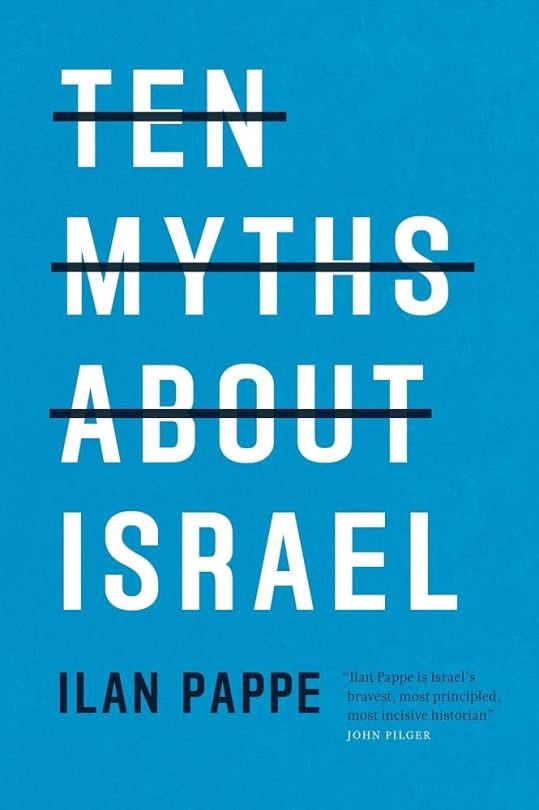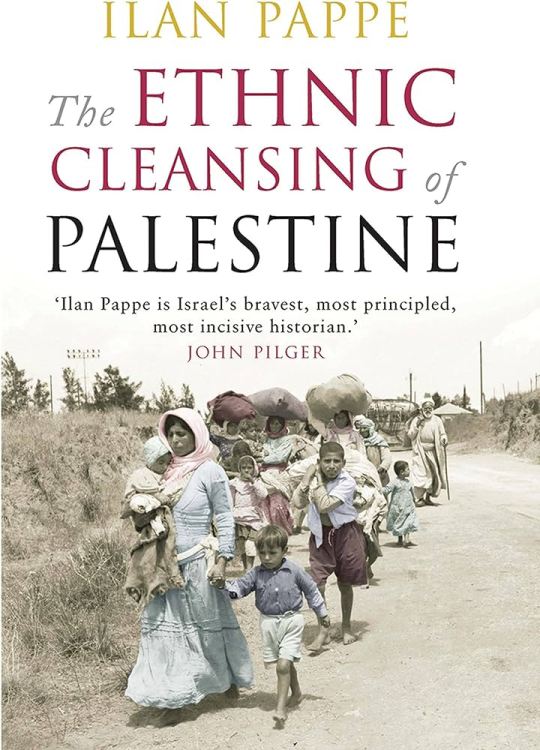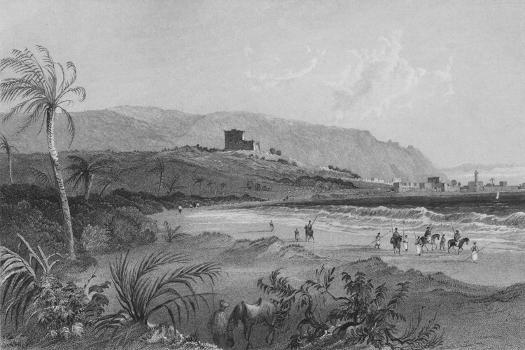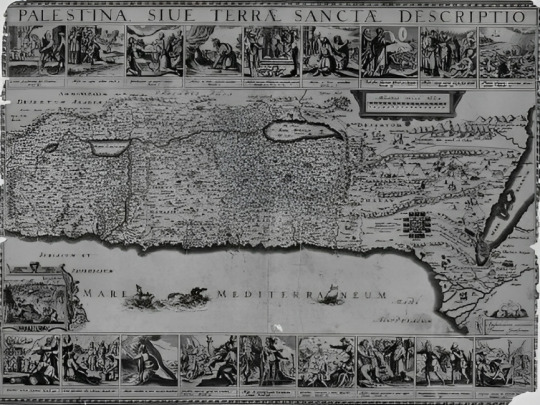#read settlers
Explore tagged Tumblr posts
Text
“But what about Hamas?” I grew up with this question whipped at my face every time I declared my people’s right to survive. “What about Hamas?” It didn’t matter if I’d just asked for clean water or the right to return to our stolen land. “What about Hamas?” they’d ask, holding my humanity hostage. Their smug smiles at this question, which they saw as a rhetorical coup. I gave them hours, pages of my words. I filled rooms with my hot breath, panting, “We are not terrorists—Hamas is a symptom of oppression—yes of course I condemn extremism—this is a struggle for human rights—Israel propped up Hamas for years—please look at our children—please, don’t you see our helpless elders?—please, if you don’t respect us as humans, could you spare some pity?”
Sarah Aziza, Doomsday Diaries.
[emphasis added]
7K notes
·
View notes
Text

tags update: rafah is 8th on trending
edit: it is now at 7th
FOR CONTEXT:
israel has launched an invasion and heavy bombing of rafah(a.k.a the "safe zone" 1.7 million Palestinians were forced into) after the UN approved a ceasefire resolution for the rest of ramadan... all 2 weeks of it. results were 14 votes for YESes. 0 NOs. and 1 didn't vote(take a guess who it was) the resolution called for an unconditional release of all hostages on both sides. so yes, mr "i am totally just doing this to get my hostages back whom i totally care about and totally didn't kill" Israel is launching harder attacks even after being promised all hostages release. just in case anyone was still questioning if Israel was using hostages as just an excuse for colonialism
russia tried to turn it into a permanent ceasefire but the US vetoed it. i guess vetoing a ceasefire looks less bad when russia is the one proposing it
DON'T STOP TALKING ABOUT PALESTINE
#also bibi cancelled his visit to the US because of this... Oh ThE TraGeDy#i read about the resolution and was like “huh i wonder how long it will take israel to break it”#i didn't even have time to post THAT and they already did it#yemen#jerusalem#tel aviv#current events#palestine#free palestine#gaza#free gaza#news on gaza#palestine news#news update#war news#war on gaza#settler colonialism#genocide#gaza genocide#Gaza port#rafah
3K notes
·
View notes
Text
ur acc is just genocidal cope
also every US politician: “the UN is not legally binding”
israel really is just another western puppet to destabilize a region they dont belong in








#fuck israel#stop equating judiasm with zionism u freaks#the iof helps train white south african militias and US police orgs#gaza fights for freedom#hands off yemen#hands off lebanon#war criminals should be haunted like war criminals#read settlers#operation condor#honduras#zimbabwe#panama#biafra
31 notes
·
View notes
Text







Recommended reading on Palestine, Israel, and Zionism
#palestine#israel#zionism#settler colonialism#all of these I've read and recommend - there are others on my reading list that I've yet to get to
2K notes
·
View notes
Text
Israeli-Palestinian Discourse






click to download
When does a native become a settler? by Yuval Evri, Hagar Kotef
Settler Colonialism and the Elimination of the Native by Patrick Wolfe
The Question of Palestine by Edward Said
Zionist Colonialism in Palestine (1965) by Fayez Sayegh
The Ethnic Cleansing of Palestine by Ilan Pappe
Fateful Triangle: The United States, Israel, and the Palestinians by Noam Chomsky
Zionism and Colonialism by Gershon Shafir
Traces of History: Elementary Structures of Race by Patrick Wolfe
The Palestinians’ Inalienable Right to Resist by Louis Allday
On Palestine By Noam Chomsky, Ilan Pappe and Frank Barat

Read About Palestine // Quotes
Artworks: Bethlehem Street Scene Photograph No.1 - Bethlehem, Palestine by Lantern Press // Approach to Caipha, Bay of Acre, Coast of Palestine by William Henry Bartlett // Fountain of the Virgin, Nazareth, Palestine, C1927-C1931 // Tower of the Forty Martyrs, Ramla, Palestine, C1930S by Ewing Galloway // Light Shining in Church of the Nativity Photograph No.2 - Bethlehem, Palestine by Lantern Press // The Market, Haifa, Palestine, C1920S-C1930S // Holyland Land Palestine - 1650
@liriostigre
#book recs#palestine#israel#middle east#nonfiction#settler colonialism#decolonisation#dark academia#refugees#gaza#history#books & libraries#light academia#book reccs#books and libraries#books and reading#artwork#resistance#illustration#current events#reading#booklr#book list#to read
307 notes
·
View notes
Text
Hey, uh, what's your favourite war crime? For research purposes...
#raccoons rambles#my insect-devouring transhumanist cannibal not-cult rancher farmers that crashlanded on a massive slime mold are running out of ideas#for some reason sending drop pods of toxic waste that we didn't create was too far#and the local gunslinging settlers got mad#mind you the colony has to regularly consume their enemies because the growing season is too short#and the only food is the occasional animal that wanders in and literal slime#surprised they've lasted like 4 years already#they're at the point that they can raise kids#this is all from rimworld btw#i recently got back into it#i'm tired and fighting a headache rn#gonna go to bed now#thanks for reading#...this may be partly why i haven't been posting lately
27 notes
·
View notes
Text
maine is the first state to see the sun in the continental us (dawnland baby!) and i think that should translate into maine being one of those ridiculously early risers who everyone else hates send post
#wttt#wttt maine#me#sonder's posts#everyone else is like MAINE we have artificial light for a REASON we are trying to SAVOR the blessing of not having to wake up at dawn#and maine is like Im Doing Great. Im Doing Fine. I Love The Beautiful Sunrise So Much. Ive Never Heard of Sleep Deprivation In My Life.#This Morning I Raked The Yard Scared Off Two Deer And Fed The Cats And Then Drove An Hour To Go Watch The Sunrise Again#im reading a book on early american settlers cultures right now so expect some posts from me based on that maybe#this isnt one of them to be clear but its making me Think#mostly just 'damn the puritans were losers LMAO'
27 notes
·
View notes
Text




>mfw i realize the investors of the royal trading company i hired myself out to as land-marine security have bet their entire livelihoods and dreams for the future on a doomed project and i just could not care less about any of them.
Pocahontas (1995)
#'''those boys'''' :3#king bitch john smith#john smith#disney john smith#disney's pocahontas#disneyedit#pocahontasedit#pocahontas meta#pocahontas#disneygif#pocahontasgif#queso*gif#queso*edit#john 'cunt montague' smith saying some more out of pocket shit about his fellow englishmen#this man. fucking Hates the people he's here with#there's no way he doesn't do more than tolerate them all. he's Constantly pulling anti-social shit like this#even how he indulges thomas reads very much as 'tolerance for the kid' to me#from the settlers' perspective the revelation that Virginia has no gold is Life Ruining News#and john's response is to Laugh. the virginia company is falling apart john. and you're LAUGHING#this is a good time to remember that john's not actually there as a ''settler'' himself#HE'S not personally invested in the company. he's there to protect the investors' interests. for PAY.#he's a hired gun: his job is to make sure nobody dies too badly on this venture#and he's good at his job! he's a damn professional. he doesn't need to LIKE them to give a shit about them all surviving.#hell part of his job is working with and maintaining order among the company for RATCLIFFE#and they HATED each other on SIGHT.#pocahontas (1995)
51 notes
·
View notes
Text
"In these circumstances, the commercial economy of the fur trade soon yielded to industrial economies focused on mining, forestry, and fishing. The first industrial mining (for coal) began on Vancouver Island in the early 1850s, the first sizeable industrial sawmill opened a few years later, and fish canning began on the Fraser River in 1870. From these beginnings, industrial economies reached into the interstices of British Columbia, establishing work camps close to the resource, and processing centers (canneries, sawmills, concentrating mills) at points of intersection of external and local transportation systems. As the years went by, these transportation systems expanded, bringing ever more land (resources) within reach of industrial capital. Each of these developments was a local instance of David Harvey's general point that the pace of time-space compressions after 1850 accelerated capital's "massive, long-term investment in the conquest of space" (Harvey 1989, 264) and its commodifications of nature. The very soil, Marx said in another context, was becoming "part and parcel of capital" (1967, pt. 8, ch. 27).
As Marx and, subsequently, others have noted, the spatial energy of capitalism works to deterritorialize people (that is, to detach them from prior bonds between people and place) and to reterritorialize them in relation to the requirements of capital (that is, to land conceived as resources and freed from the constraints of custom and to labor detached from land). For Marx the
wholesale expropriation of the agricultural population from the soil... created for the town industries the necessary supply of a 'free' and outlawed proletariat (1967, pt. 8, ch. 27).
For Gilles Deleuze and Felix Guattari (1977) - drawing on insights from psychoanalysis - capitalism may be thought of as a desiring machine, as a sort of territorial writing machine that functions to inscribe "the flows of desire upon the surface or body of the earth" (Thomas 1994, 171-72). In Henri Lefebvre's terms, it produces space in the image of its own relations of production (1991; Smith 1990, 90). For David Harvey it entails the "restless formation and reformation of geographical landscapes," and postpones the effects of its inherent contradictions by the conquest of space-capitalism's "spatial fix" (1982, ch. 13; 1985, 150, 156). In detail, positions differ; in general, it can hardly be doubted that in British Columbia industrial capitalism introduced new relationships between people and with land and that at the interface of the native and the nonnative, these relationships created total misunderstandings and powerful new axes of power that quickly detached native people from former lands. When a Tlingit chief was asked by a reserve commissioner about the work he did, he replied
I don't know how to work at anything. My father, grandfather, and uncle just taught me how to live, and I have always done what they told me-we learned this from our fathers and grandfathers and our uncles how to do the things among ourselves and we teach our children in the same way.
Two different worlds were facing each other, and one of them was fashioning very deliberate plans for the reallocation of land and the reordering of social relations. In 1875 the premier of British Columbia argued that the way to civilize native people was to bring them into the industrial workplace, there to learn the habits of thrift, time discipline, and materialism. Schools were secondary. The workplace was held to be the crucible of cultural change and, as such, the locus of what the premier depicted as a politics of altruism intended to bring native people up to the point where they could enter society as full, participating citizens. To draw them into the workplace, they had to be separated from land. Hence, in the premier's scheme of things, the small reserve, a space that could not yield a livelihood and would eject native labor toward the industrial workplace and, hence, toward civilization. Marx would have had no illusions about what was going on: native lives, he would have said, were being detached from their own means of production (from the land and the use value of their own labor on it) and were being transformed into free (unencumbered) wage laborers dependent on the social relations of capital. The social means of production and of subsistence were being converted into capital. Capital was benefiting doubly, acquiring access to land freed by small reserves and to cheap labor detached from land.
The reorientation of land and labor away from older customary uses had happened many times before, not only in earlier settler societies, but also in the British Isles and, somewhat later, in continental Europe. There, the centuries-long struggles over enclosure had been waged between many ordinary folk who sought to protect customary use rights to land and landlords who wanted to replace custom with private property rights and market economies. In the western highlands, tenants without formal contracts (the great majority) could be evicted "at will." Their former lands came to be managed by a few sheep farmers; their intricate local land uses were replaced by sheep pasture (Hunter 1976; Hornsby 1992, ch. 2). In Windsor Forest, a practical vernacular economy that had used the forest in innumerable local ways was slowly eaten away as the law increasingly favored notions of absolute property ownership, backed them up with hangings, and left less and less space for what E.P. Thompson calls "the messy complexities of coincident use-right" (1975, 241). Such developments were approximately reproduced in British Columbia, as a regime of exclusive property rights overrode a fisher-hunter-gatherer version of, in historian Jeanette Neeson's phrase, an "economy of multiple occupations" (1984, 138; Huitema, Osborne, and Ripmeester 2002). Even the rhetoric of dispossession - about lazy, filthy, improvident people who did not know how to use land properly - often sounded remarkably similar in locations thousands of miles apart (Pratt 1992, ch. 7). There was this difference: The argument against custom, multiple occupations, and the constraints of life worlds on the rights of property and the free play of the market became, in British Columbia, not an argument between different economies and classes (as it had been in Britain) but the more polarized, and characteristically racialized juxtaposition of civilization and savagery...
Moreover, in British Columbia, capital was far more attracted to the opportunities of native land than to the surplus value of native labor. In the early years, when labor was scarce, it sought native workers, but in the longer run, with its labor needs supplied otherwise (by Chinese workers contracted through labor brokers, by itinerant white loggers or miners), it was far more interested in unfettered access to resources. A bonanza of new resources awaited capital, and if native people who had always lived amid these resources could not be shipped away, they could be-indeed, had to be-detached from them. Their labor was useful for a time, but land in the form of fish, forests, and minerals was the prize, one not to be cluttered with native-use rights. From the perspective of capital, therefore, native people had to be dispossessed of their land. Otherwise, nature could hardly be developed. An industrial primary resource economy could hardly function.
In settler colonies, as Marx knew, the availability of agricultural land could turn wage laborers back into independent producers who worked for themselves instead of for capital (they vanished, Marx said, "from the labor market, but not into the workhouse") (1967, pt. 8, ch. 33). As such, they were unavailable to capital, and resisted its incursions, the source, Marx thought, of the prosperity and vitality of colonial societies. In British Columbia, where agricultural land was severely limited, many settlers were closely implicated with capital, although the objectives of the two were different and frequently antagonistic. Without the ready alternative of pioneer farming, many of them were wage laborers dependent on employment in the industrial labor market, yet often contending with capital in bitter strikes. Some of them sought to become capitalists. In M. A. Grainger's Woodsmen of the West, a short, vivid novel set in early modern British Columbia, the central character, Carter, wrestles with this opportunity. Carter had grown up on a rock farm in Nova Scotia, worked at various jobs across the continent, and fetched up in British Columbia at a time when, for a nominal fee, the government leased standing timber to small operators. He acquired a lease in a remote fjord and there, with a few men under towering glaciers at the edge of the world economy, attacked the forest. His chances were slight, but the land was his opportunity, his labor his means, and he threw himself at the forest with the intensity of Captain Ahab in pursuit of the white whale. There were many Carters.
But other immigrants did become something like Marx's independent producers. They had found a little land on the basis of which they hoped to get by, avoid the work relations of industrial capitalism, and leave their progeny more than they had known themselves. Their stories are poignant. A Czech peasant family, forced from home for want of land, finding its way to one of the coaltowns of southeastern British Columbia, and then, having accumulated a little cash from mining, homesteading in the province's arid interior. The homestead would consume a family's work while yielding a living of sorts from intermittent sales from a dry wheat farm and a large measure of domestic self-sufficiency-a farm just sustaining a family, providing a toe-hold in a new society, and a site of adaptation to it. Or, a young woman from a brick, working-class street in Derby, England, coming to British Columbia during the depression years before World War I, finding work up the coast in a railway hotel in Prince Rupert, quitting with five dollars to her name after a manager's amorous advances, traveling east as far as five dollars would take her on the second train out of Prince Rupert, working in a small frontier hotel, and eventually marrying a French Canadian farmer. There, in a northern British Columbian valley, in a context unlike any she could have imagined as a girl, she would raise a family and become a stalwart of a diverse local society in which no one was particularly well off. Such stories are at the heart of settler colonialism (Harris 1997, ch. 8).
The lives reflected in these stories, like the productions of capital, were sustained by land. Older regimes of custom had been broken, in most cases by enclosures or other displacements in the homeland several generations before emigration. Many settlers became property owners, holders of land in fee simple, beneficiaries of a landed opportunity that, previously, had been unobtainable. But use values had not given way entirely to exchange values, nor was labor entirely detached from land. Indeed, for all the work associated with it, the pioneer farm offered a temporary haven from capital. The family would be relatively autonomous (it would exploit itself). There would be no outside boss. Cultural assumptions about land as a source of security and family-centered independence; assumptions rooted in centuries of lives lived elsewhere seemed to have found a place of fulfillment. Often this was an illusion - the valleys of British Columbia are strewn with failed pioneer farms - but even illusions drew immigrants and occupied them with the land.
In short, and in a great variety of ways, British Columbia offered modest opportunities to ordinary people of limited means, opportunities that depended, directly or indirectly, on access to land. The wage laborer in the resource camp, as much as the pioneer farmer, depended on such access, as, indirectly, did the shopkeeper who relied on their custom.
In this respect, the interests of capital and settlers converged. For both, land was the opportunity at hand, an opportunity that gave settler colonialism its energy. Measured in relation to this opportunity, native people were superfluous. Worse, they were in the way, and, by one means or another, had to be removed. Patrick Wolfe is entirely correct in saying that "settler societies were (are) premised on the elimination of native societies," which, by occupying land of their ancestors, had got in the way (1999, 2). If, here and there, their labor was useful for a time, capital and settlers usually acquired labor by other means, and in so doing, facilitated the uninhibited construction of native people as redundant and expendable. In 1840 in Oxford, Herman Merivale, then a professor of political economy and later a permanent undersecretary at the Colonial Office, had concluded as much. He thought that the interests of settlers and native people were fundamentally opposed, and that if left to their own devices, settlers would launch wars of extermination. He knew what had been going on in some colonies - "wretched details of ferocity and treachery" - and considered that what he called the amalgamation (essentially, assimilation through acculturation and miscegenation) of native people into settler society to be the only possible solution (1928, lecture xviii). Merivale's motives were partly altruistic, yet assimilation as colonial practice was another means of eliminating "native" as a social category, as well as any land rights attached to it as, everywhere, settler colonialism would tend to do.
These different elements of what might be termed the foundational complex of settler colonial power were mutually reinforcing. When, in 1859, a first large sawmill was contemplated on the west coast of Vancouver Island, its manager purchased the land from the Crown and then, arriving at the intended mill site, dispersed its native inhabitants at the point of a cannon (Sproat 1868). He then worried somewhat about the proprieties of his actions, and talked with the chief, trying to convince him that, through contact with whites, his people would be civilized and improved. The chief would have none of it, but could stop neither the loggers nor the mill. The manager and his men had debated the issue of rights, concluding (in an approximation of Locke) that the chief and his people did not occupy the land in any civilized sense, that it lay in waste for want of labor, and that if labor were not brought to such land, then the worldwide progress of colonialism, which was "changing the whole surface of the earth," would come to a halt. Moreover, and whatever the rights or wrongs, they assumed, with unabashed self-interest, that colonists would keep what they had got: "this, without discussion, we on the west coast of Vancouver Island were all prepared to do." Capital was establishing itself at the edge of a forest within reach of the world economy, and, in so doing, was employing state sanctioned property rights, physical power, and cultural discourse in the service of interest."
- Cole Harris, “How Did Colonialism Dispossess? Comments from an Edge of Empire,” Annals of the Association of American Geographers, Vol. 94, No. 1 (Mar., 2004), p. 172-174.
#settler colonialism#settler colonialism in canada#dispossession#violence of settler colonialism#land theft#canadian history#indigenous people#first nations#reading 2024#cole harris#history of british columbia#reservation system#resource extraction#british empire#canada in the british empire#homesteading#marxist theory#capitalism#capitalism in canada#immigration to canada
25 notes
·
View notes
Text
i read this article a while ago for a class and it was good. its a complex distinction he making about different aspects of settler colonialism and what ties settler colonies together. specifically what he calls 'elimination of the native' where while destroying native society settlers still incorporate indigenous aspects into the settler society to legitimize it. just wanted to add this quote:
As Deborah Bird Rose has pointed out, to get in the way of settler colonization, all the native has to do is stay at home.
97 notes
·
View notes
Text
All Americans acting like this is just
The Worst™
and the end of the world and "we all lost TODAY" and "I'm so shaken I gotta substance abuse and forget about the world pray for us" and "this SURE is stress awareness week amiright" while. Palestinian people have been living in literal hell not just for a whole year of continuous bombing, kidnapping and torture. But 76 years in a row. And not even to mention the rest of the horrors worldwide caused and funded by USA. Are you out of your mind
#i dont want to compare but sometimes usa people sound just as lost and selfish and int heir own made up world as israel settlers#then i just remember they are just two faces if the same coin half the time#besides usa is just that tho#settlers in stolen land#like#look#you have all rights to be upset about the reality of usa#in fact i dont think yall are as mad and you should never#but sometimes shut your hole mouth is the best thing to do i think#i hope no Palestinian nor Lebanese no Sudanese no Iraqui no american native no-etcetc has to ever read you#on top on getting their lives fucked up by everyone ever in charge in that shit country being the very core of Imperialism and murder#enigüei#like if Kamala would have won today and then caged a kid tomorrow while y'all sleep on it because terror under lib party is acceptable#y'all didn't even cared what Palestine is five years back.#vent#dont mind me#if i had 5 usamerican friends today i have like 1#as*
17 notes
·
View notes
Text



#warrior cats#wc designs#falling feather#jackdaw's cry#ancient tribe#early settler#starclan#dawn of the clans#gave them separate images because the first one is really small and you can barely read the words lol
225 notes
·
View notes
Text
started flipping tables in my head again like those old rage comics cause cbc published another article on solidarity with palestinians that presents 'from the river to the sea' as a call for the ethnic cleansing of jewish people, but that 'its meaning and use is more complicated'. ill click the link on the part of the sentence that says 'experts told cbc' (its complicated) when i feel like flipping tables again but in the meantime lets try working with one instead of dropping the whole thing.
from the river to the sea palestine will be free from jews is an antisemitic position, one that is no different from the same calls for the ethnic cleansing of jewish people antisemites around the world call for in their own countries. a problem arises in that israel benefits from antisemitism in what it maintains as diasporas, antisemites and zionists have worked together for over a century to tie jewish people to this particular colony in palestine, and the notion of jewish people as necessarily foreigners wherever they may be maintains its legitimacy specifically through the exception that is israel.
to belong somewhere is too often not to belong elsewhere, and in the case of zionism, belonging is employed in a way that existentially ties the struggle against antisemitism, the ongoing genocidal process that targets jewish people, with zionism, the ongoing settler colonial process that targets palestinian land and produces a genocidal relationship between its settlers and indigenous people. for jewish people not to belong 'here' and not to 'belong nowhere', they must 'belong somewhere', and for them to 'truly belong' (the american way), they must put into question the belonging of everyone only to fall back on settler bourgeois property relations. that is why the right to return of palestinians is something zionists refuse to concede to, and fundamentally can not: because the unbelonging of palestinians from their land is a necessary function of israeli sovereignty, through the colonial establishment of bourgeois property rights.
the violence capital has wrought on the body of the earth has been given a special attribution to jewish people for a long time. so called socialists have historically tempted to solve the contradictions of capital by means of scapegoating jewish people. the violence committed in the name of israel is not uniquely jewish in character: it is colonial, imperialist, capitalist violence being committed by people who are jewish. even though israel is a product of global antisemitism and a pervasive cultivated desire in the west to expel jews, the israeli economy and its settler bourgeois property relations is its material raison d'etre, and this, again, is not uniquely jewish, it is simply another segment of the bourgeoisie being bourgeois. what one calls a national bourgeoisie
from the river to the sea palestine will be free. from apartheid. from genocide. from settler colonialism. from imperialism. from capitalism. but right now it is not. the sun will set on israel one day, just like canada and the us, just like the so called thousand year reich that only lasted a handful of years because of its imperialist colonial and genocidal relationship to its volk, lebensraum, and whoever and whatever was next door.
to fill the gap of 'what does freedom involve' with 'the ethnic cleansing of jewish people' shouldnt be considered more reasonable when the topic is israel and palestine. it should be rejected as an antisemitic position, and yet it is so often being presented not only as a reasonable conclusion but as the only way it could be. as common sense. of course freedom means kill the jews, and to question this is the real antisemitism. of course this is all the palestinians could ever mean by freedom
when mel gibson was screaming about freedom in that movie do you think it was about getting back to committing pogroms? that jewish presence was his characters real problem with the english? idk ive never seen it but why would it necessarily be the case with israel and palestine? there being a greater need to expel jews because there are a higher proportion of jews is just antisemitic reasoning. it being a colony that is so jewish it explicitly considers itself as such shouldnt be a reason for us to implicate every jewish person globally as a collective in punishment and further buy into and reproduce zionist propaganda.
to abolish israel would not only liberate palestinians, it would also liberate jewish people from zionist claims of an existential relationship to apartheid in palestine. to believe that without zionism jewish people could not culturally or biologically survive is to take the zionist claim regarding existentiality and colonialism to those degrees.
the liberation of palestine is historically inevitable. it will happen. this process necessarily involving the ethnic cleansing of jewish people is an antisemitic lie that serves a dual function: rejection of palestinian resistance based on essentialist claims of antisemitism and rejection of antisemitism based on essentialist claims of zionist interest. zionism puts the interests of jews and palestinians in conflict, and only a free palestine can allow for actual jewish safety there.
from the river to the sea palestine will be free from collective punishment. but right now it is not. palestinians are experiencing genocide at the hands of israel and its supporters. the end of apartheid is a historical necessity: it will eventually happen. you cannot stop it from collapsing, only delay it. israels days are numbered, just like canada and the us. every day without a ceasefire is another particular form of breath of existence for israel, and another set of breaths taken away from palestinians. ceasefire now.
#the term settler bourgeois is redundant imo like saying a rectangular square#but i dont think most ppl read bourgeois to necessarily imply settlement even when its the etymology of the word#ngl i was thinking of marc labreche flipping tables because im rewatching le coeur a ses raisons#specifically deleuzes notion of a table#or particular kind of table ppl consider unsavoury#a loosely organized stack of ideas
63 notes
·
View notes
Text

Mahmood Mamdani, Neither Settler nor Native: The Making and Unmaking of Permanent Minorities (2020)
#mamdani has like four main points to make over and over again in this book but he writes them so compellingly every time I’m like fuck#mahmood mamdani#neither settler nor native#reading
55 notes
·
View notes
Text
I’m watching a documentary my friend recommended to me called the law in these parts, which is about the history of israeli military law in palestine, and like. jesus christ they were literally just doing lebensraum. the same low density suburban development that plagues north america, the same plan of fascist expansion eastward done by nazi germany was done in palestine, with the justification that these residential settlements built for settler civilians were actually military outposts and therefore legal under international law. it’s literally just lebensraum
#I wonder about the context of the justification as like a strategic exception to international law#like is this an essential strategy of fascism (/colonialism) or rather one we see emerge through the context of history#the nazis obviously did this prior to international law but those laws were written in response to nazi strategies iirc#I’ve seen people make the connection that suburban development in settler colonial states in general is a fascist practice#and like I was inclined to agree but didn’t fully get the scope of the argument#but this is making it click into place for me#again premised on the foundational argument that fascism and colonialism are synonymous processes that cannot be separated from one another#which is the strongest definition of fascism I’ve encountered so far in all of my readings
67 notes
·
View notes
